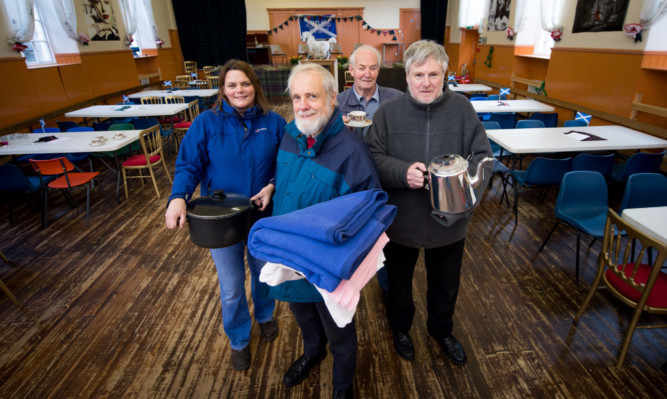Teams of local heroes have been put on stand-by to help motorists caught out by extreme weather on one of Scotland’s deadliest roads.
Volunteer teams in towns and villages along the A9 have assembled to offer support to any drivers stuck in flooding or heavy snow.
Following weeks of storms across Perthshire and other parts of Scotland, police chiefs and Transport Scotland have teamed up with local authorities and community councillors to draw up an emergency plan for the A9.
From Dunblane to Blair Atholl, facilities including town halls and schools will be used as refuge centres for stranded motorists or evacuated residents. Voluntary groups in 10 Perthshire communities have been primed to offer assistance.
Details of the plan were unveiled yesterday as the Met Office forecast a cold spell for Tayside in the coming days.
The region was battered by Storm Desmond at the beginning of December, forcing some Blair Atholl residents out of their homes. They were given shelter at the town’s Atholl Arms Hotel.
Days later, the A9 was brought to a standstill when a lorry overturned in heavy snow.
Council leader Ian Miller said yesterday: “The A9 often suffers the brunt of stormy weather in Scotland. Blizzards, heavy snowfall, high winds and flooding, can all have an impact on roads.
“And despite the best efforts of the authorities, occasionally the A9 may have to close. This means that even sensible drivers who take all the right precautions can be caught out.”
He said: “Their safety and welfare is of the upmost importance while agencies work to clear the route.
“So we have worked with local communities and a number of other partners to develop new approaches to help ensure drivers can be diverted to an appropriate location until conditions improve.”
Mr Miller added: “We believe local community groups can be a welcome helping hand when it comes to offering somewhere safe and warm to wait out of the worst of the weather.”
Chief inspector Louise Blakelock, police roads commander for the north, said: “Winter driving is a question of common sense and motorists should ask themselves if they really need to travel when conditions are poor.
“However, if drivers do find themselves stuck on that stretch of road, the local communities are well placed to help keep them warm and dry.”
She added: “This plan is not a substitute for drivers thinking ahead and considering whether it is appropriate to make the journey.”
Transport Minister Derek Mackay said: “Our trunk road operating companies do all they can to keep the network operating in the winter. Despite these efforts, the elements can sometimes overcome us and this plan will help improve resilience in these situations.”
